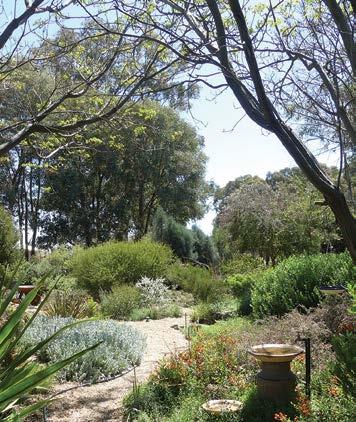
1 minute read
Introduction
A sustainable garden enhances the natural environment.
Gardening is about creating a beautiful and interesting space that we can enjoy with our family and friends. It’s easy to garden sustainably for the health and well-being of our family and the environment.
With some planning we can also create a home for some of our native animals. This not only helps with their protection, but also makes a much more interesting and enjoyable garden for us.
This Albury-Wodonga Garden Guide has been designed to provide you with local information and inspiration to create a beautiful garden that also cares for our environment, especially animals. It focuses on local native plants that grow well in this region. A garden of non-native plants can also be great habitat and be sustainable too. The ideas in this book apply to gardens of mostly exotic plants.

Tips for creating a sustainable garden
• Plant at least some local native plants that are naturally adapted to your local soil and climate. Many native birds, reptiles, frogs, mammals and insects rely on these plants for food and shelter and will be attracted to a garden with local native plants. • Using pesticides not only pollutes, it kills many beneficial insects. Many birds and mammals eat insects. Think twice about reaching for a pesticide. We need to change the idea that all insects are
“baddies”.
• When buying products for the garden consider recycled, or those made from renewable resources.
• Think about growing at least some of your own food – herbs and greens are easy, and the nutrient value is much higher if freshly picked. • Garden design and plant selection vary tremendously depending on individual taste and lifestyle. This booklet provides general sustainable gardening information applicable to any garden. • Looking carefully at other people’s gardens near you is one of the best guides. Look at what insects and birds are using which plants, what is growing well without much water and care, and consider what style appeals to you.





